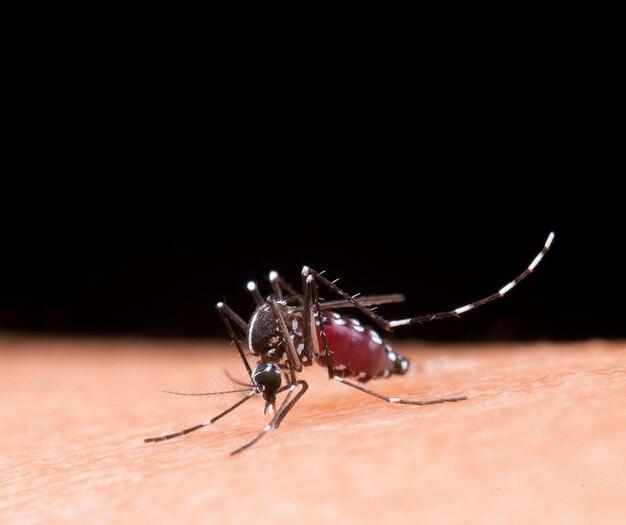Malaria is a serious problem affecting many people around the world today. Did you know that hundreds of thousands of people die from this disease every year?
According to WHO (World Health Organization), in 2022, there were over 240 million cases of malaria and over 250 million in 2023, globally.
This goes to show that for many people worldwide, malaria is a serious, everyday risk. The noticeable increase and growing trend in the number of global cases makes it a challenge to combat this disease.
Today, we explore the high-risk zones and chances of catching malaria. We also look at the best ways to prevent malaria, especially if you live in or travel to places where it's common.

Malaria is a mosquito-borne infectious disease that is caused by a mosquito bite. When an infected Anopheles mosquito bites you, it injects malaria parasites into your bloodstream.
These parasites then travel to your liver to grow and multiply. After a few days, they leave the liver and invade your red blood cells, which is when symptoms start to appear. The cycle continues when another mosquito bites an infected person, picking up the parasites and then biting someone else.
Malaria is a common disease in certain parts of the world, especially in tropical and subtropical climates where the Anopheles mosquito can survive and breed. Such include;
Sub-Saharan Africa - This region has the highest prevalence of malaria, with countries such as Nigeria, the Democratic Republic of Congo, Uganda, and Mozambique, being affected the most.
Southeast Asia - Countries like India, Indonesia, and Myanmar see a large number of malaria cases each year.
South America - Parts of the Amazon Basin in countries such as Brazil, Venezuela, and Colombia are affected.
Central America and the Caribbean - Though less common than in Africa or Southeast Asia, some parts of Central America and the Caribbean still report malaria cases.
The Middle East and South Asia - Certain areas in Pakistan and Afghanistan, as well as Yemen and parts of Saudi Arabia, also face malaria challenges.
If you live in the UK, there is an exceptionally low chance of you catching malaria because it is not endemic. This means there is no local transmission of the disease within the country.
However, malaria cases do occur in the UK among travellers returning from countries where malaria is prevalent. It is therefore important to understand and be aware of these geographical zones and take the necessary prevention measures if travelling to these areas.
If you're travelling to places where malaria is common, here are some ways you can protect yourself;
Know the risk - Before you go, find out if your destination has malaria. Places like parts of Africa, Southeast Asia, and South America are high-risk zones.
Visit a travel clinic - A few weeks before your trip, visit a travel clinic. They can tell if you need malaria pills and which ones are right for your destination.
Take your pills - If you are prescribed malaria medication, start taking it before you travel, continue during your trip, and keep taking it for a while after you come back. This helps make sure the malaria parasites don’t get a chance to make you sick.
tUse mosquito repellen - Always use an insect repellent that has DEET, picaridin, or oil of lemon eucalyptus. Reapply as directed, especially after sweating or swimming.
Sleep under a mosquito net - If you are staying in a place with no screens or air conditioning, sleep under a mosquito net. Make sure it is treated with insecticide.
Cover up - Wear long sleeves and pants during early morning and evening hours when mosquitoes are most active. This reduces the chances of getting bitten.
Be alert After your travel - Once home from a trip, keep an eye out for malaria symptoms like fever, chills, and aches. If you feel sick, see a doctor right away and tell them about your travel.

If you want the latest information on the best Hotel Executive Club Lounges, Hotel Kids Clubs and other travel information, be sure to sign up for our free newsletter full of tips and great travel ideas.